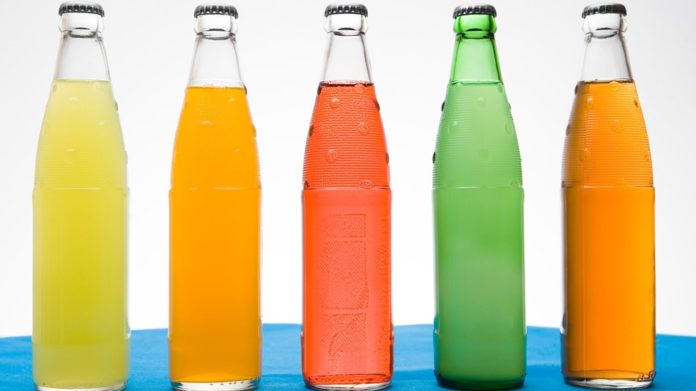Sugary drinks kill 184,000 people every year, study claims

Sugary drinks cause 184,000 deaths worldwide annually, including 25,000 deaths in the United States, according to a new study.
The finding — a revised estimate of numbers first presented at a scientific meeting in 2013 — represents a tally of deaths from diabetes, heart disease and cancer that scientists say can be directly attributed to the consumption of sweetened sodas, fruit drinks, sports/energy drinks and iced teas.
The numbers imply that sugary drinks can cause as many deaths annually as the flu.
“It should be a global priority to substantially reduce or eliminate sugar-sweetened beverages from the diet,” said Dr. Dariush Mozaffarian, senior author of the study and dean of the Friedman School of Nutrition Science and Policy at Tufts University in Massachusetts.
There is evidence that sugary drinks contribute to obesity and that obesity contributes to people’s risk of these diseases, Mozaffarian said. Previous studies found that obesity-related diseases cause more than 17 million deaths per year.
For this latest study, led by Gitanjali Singh, an assistant professor at Tufts, researchers attempted to tease out the contribution that sugary drinks make to this global burden of obesity-related deaths. They calculated that there are 133,000 deaths yearly from type 2 diabetes; 45,000 deaths from cardiovascular disease; and 6,450 deaths from cancer.
The study is based on a complex statistical analysis of country-specific dietary habits and causes of death in more than 50 countries, coupled with information on the availability of sugar on the world market. The researchers’ definition of sugary drinks included beverages sweetened with cane sugar, beet sugar and high-fructose corn syrup.
“Among the 20 countries with the highest estimated sugar-sweetened beverage-related deaths, at least eight were in Latin America and the Caribbean, reflecting the high intakes in that region of the world,” Singh said.
In Mexico, where more than 10% of the population has diabetes, approximately 30% of the deaths among people under age 45 are due to sugary drinks, the researchers concluded. Mexico had the highest death rate attributable to sugar-sweetened beverages, the researchers said.
Conversely, in Japan, where unsweetened teas are among the most popular beverages, deaths from sugary drinks are negligible.
Americans consume 22.2 teaspoons of added sugar (equal to 355 calories) per day, on average, and sugar-sweetened beverages are the primary source of this sugar, according to the American Heart Association (AHA). The sugars are added to foods and drinks to improve their taste but provide no nutritional benefit, only calories, thus contributing to weight gain and heart disease, the AHA said.
A 12-ounce (355 milliliters) serving of regular soda has about 10 teaspoons of sugar, according to the American Diabetes Association, which recommends that people avoid drinking sugar-sweetened beverages to help prevent diabetes.
The researchers could not prove a direct cause and effect — for example, they cannot say that sugary beverages are the actual, primary cause of these 184,000 deaths on an individual level. Rather, they based their conclusions on national beverage consumption trends, death rates and sugar availability.
The beverage industry remains skeptical of the findings.
“This study does not show that consuming sugar-sweetened beverages causes chronic diseases and the authors themselves acknowledge that they are at best estimating effects of sugar-sweetened beverage consumption,” the American Beverage Association, a trade association that represents the U.S. non-alcoholic beverage industry, said in a statement.
Mozaffarian said the connection between sugary drinks and obesity is well established. “They [the industry] have their heads in the sand,” Mozaffarian told Live Science.
- Red Sea’s Glowing Corals are Rainbow of Colors
- Red Sea Underwater Tour Reveals Colorful, Deep-Sea Corals | Video
- Will Fake Rhino Horns Curb Poaching?
- Athenian Wealth: Millions of Silver Coins Stored in Parthenon Attic
This article originally published at LiveScience here

